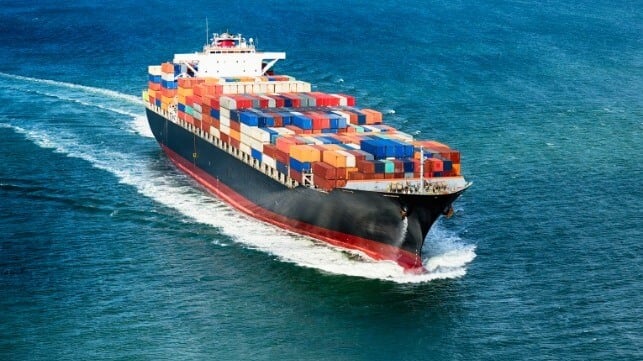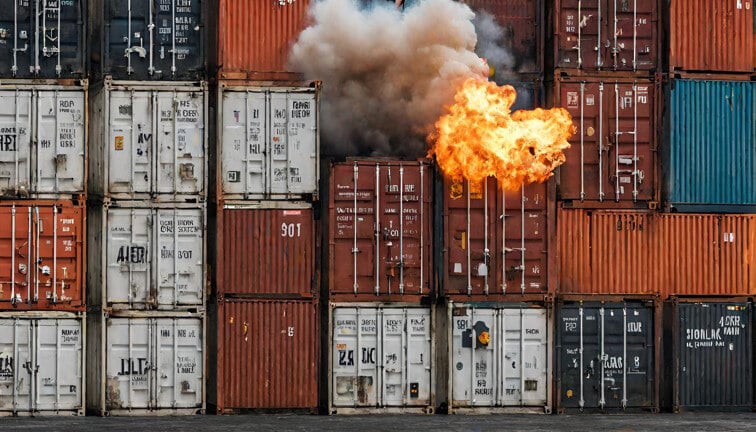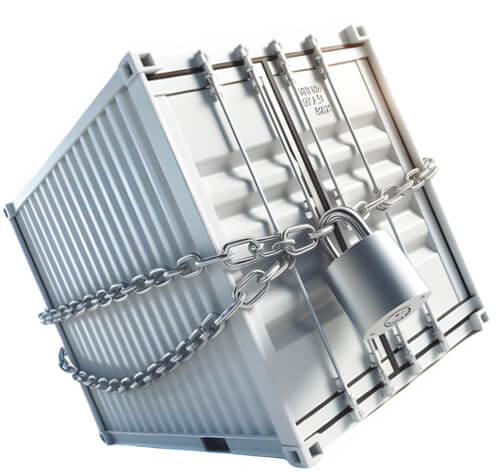Visibility from the Bridge to Improve Cargo Management

One might argue that all data relevant to the crew is available for display on the bridge. This would be true for most operational tasks. However, as more and more cargo carrying boxes become Smart-Enabled, a new frontier in cargo visibility is bypassing maritime. The team behind Net Feasa has deployed wireless networks on container ships and commercial aircraft for over a quarter of a century. We have designed the Vessel Control Tower platform to deliver to shipping companies’ full visibility of all IoT-enabled sensors, particularly in relation to cargo, on the bridge.
This was not possible until recently. The final barriers to cost-effective IoT wireless network monitoring on container vessels were only brought down in 2023. Those barriers where; IoT sensor costs and battery longevity, low-cost and simplistic wireless vessel networks, low-cost and reliable satellite backhaul to the cloud and the challenge that multi-Reefer and Dry Box telemetry devices presented. Net Feasa has addressed these barriers and delivered Vessel Control Tower (VCT), a complete connectivity and visibility suite rolled up into a pragmatic, functional and valuable cargo visibility platform. The data presented on the bridge and/or the cloud is both valuable and actionable.
All data that is being made available to the shipping company can be displayed on the bridge and in the cloud simultaneously. Our multi-radio IoT vessel networks are live and proven already. It is a groundbreaking step forward in cargo visibility. For shipping lines, Vessel Control Tower offers enhanced operational efficiency and risk mitigation. By providing real-time asset monitoring of multi-vendor reefers and proactive fire detection from smart containers, shipping lines can optimize their cargo management processes and minimize the risk of costly disruptions. With customizable dashboards and reporting capabilities, they can gain valuable insights into their operations, enabling data-driven decision-making and continuous improvement.

Today, shipping lines primarily rely on manual cargo checks and occasionally utilize powerline technology to detect faults and alarms at sea. Manual cargo checks involve crew members physically inspecting cargo periodically to ensure integrity and safety. This process was unsafe in adverse weather conditions and labor-intensive. In some cases, shipping lines utilize powerline technology to detect faults or alarms onboard vessels. However, these methods are limited in their capabilities and lacked the real-time monitoring and comprehensive visibility offered by wireless IoT vessel networks. As a result, shipping lines can deliver enhanced safety, security, and efficiency in their operations.
By installing IoT vessel networks, shipping lines enhance their competitive position, as well as underwriting the integrity of intermodal transport. With the increasing complexity of global supply chains and the growing demand for real-time visibility, traditional monitoring methods are no longer sufficient. In today's fast-paced and interconnected world, installing IoT vessel networks is essential for shipping lines to maintain a competitive edge and meet the evolving needs of their customers. If shipping companies would like to present this granular data visibility to end customers, Vessel Control Tower allows for this.

What sets Net Feasa's Vessel Control Tower apart from traditional solutions is the ability to consolidate data from all IoT-enabled cargo sources. This single visibility platform for all third party IoT and telemetry devices on board, is unique. The vessel network solution incorporates sensor technologies, data analytics, Machine Learning. and satellite optimization, to not just sense and respond, but allow shipping companies to anticipate and act.
In effect, your BAPLIE file becomes a live pulsating representation of all boxes on board. Container data includes graphical stow location, current status, temperature and associated alarms. This comprehensive approach ensures streamlined monitoring and early detection of potential challenges, revolutionizing container visibility at sea. By leveraging advanced wireless IoT networks and security expertise, Net Feasa has created a solution that sets a new standard for maritime visibility, security, quality control, and efficiency.
To service global shipping companies with our industry-leading solution, we have put in place a support capability for vessel surveying, network installation, commissioning, and customer support, that is second to none. Further unique functionality includes; IoT Device Cybersecurity Control, Regulatory Broadcast Compliance, Satellite Sync Management and LoRaWAN, Bluetooth and 5G extensions.
Net Feasa continues to deliver IoT solutions that are embedded deep in the heart of global communications and supply chains. Global partnerships allow us to deliver tailored solutions across the maritime sector, enabling remote visibility, remote asset management, and operational efficiencies. In conclusion, the introduction of Net Feasa's Vessel Control Tower promises to revolutionize container visibility at sea, offering unparalleled benefits for shipping lines, their customers, and the crew. With enhanced operational efficiency, improved transparency, and enhanced safety measures, Vessel Control Tower is set to transform the way cargo is managed and monitored at seas.
This article is sponsored by Net Feasa. For more information about Vessel Control Tower and Net Feasa, please visit http://netfeasa.com/
The opinions expressed herein are the author's and not necessarily those of The Maritime Executive.

